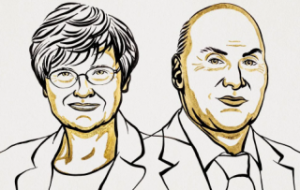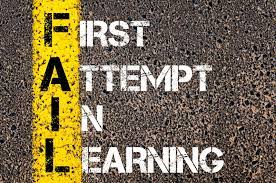
Sciencing is hard.
The process of doing science is not what is portrayed in the media. It’s frustrating. There are mistakes. There are missteps. There are scheduling conflicts, equipment breaks down, and theories don’t pan out.
This was reinforced by today’s announcement of the 2023 Nobel Prize in Medicine.
It went to Katalin Karikó, a Hungarian immigrant, and to Drew Weissman of the University of Pennsylvania, for their work on mRNA vaccines.
But it’s the back story that’s most important to me.

There are many other stories like this. Most don’t result in Nobels. Some result in total failure. A research line that looks promising can become a dead end. My son saw it happen. Malcolm Gladwell talked about this in a 2020 podcast, set at the school where my son works.
The problem is that few places can have the patience Emory has, which lets dead ends as well as breakthroughs be proven over time. Most of the people doing the work don’t make the money professors make. Some are just students.
All are heroes.










